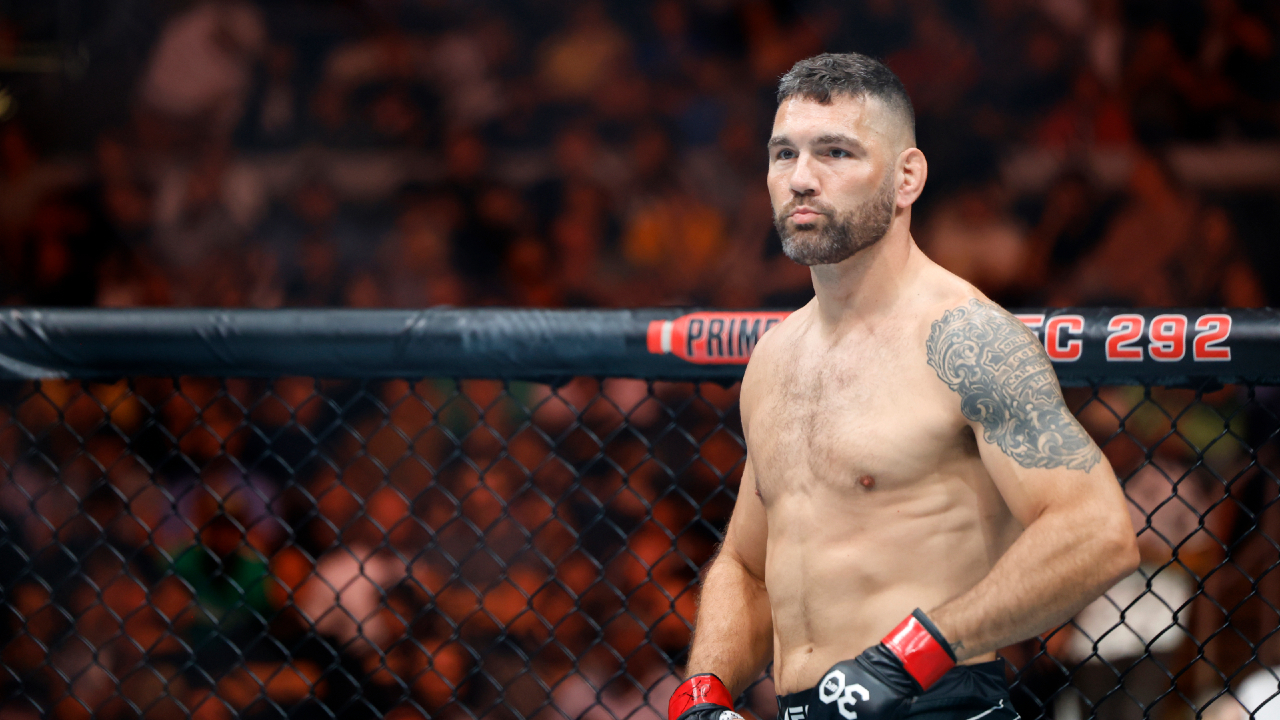In the unpredictable world of professional combat sports, the journey from champion to retirement often presents a new set of challenges, some of which are best navigated with a healthy dose of self-awareness and, as it turns out, a good sense of humor. Such was the case for former UFC middleweight kingpin, Chris Weidman, whose recent appearance on the UFC 318 weigh-in show unexpectedly turned into a candid reflection on his post-Octagon ventures, laced with a memorable on-air prank.
From Pinnacle to Pondering: Weidman`s UFC Transition
Chris Weidman etched his name into UFC history by doing what many thought impossible: twice defeating the legendary Anderson Silva, first to claim the middleweight title in 2013, then in a highly anticipated rematch. His career, however, like many in the brutal sport of mixed martial arts, was not without its trials. After a commendable run, the latter stages of his UFC tenure saw a challenging record, culminating in a second-round TKO defeat at UFC 310. At 40 years old, facing a demanding physical toll and a win-loss record that signaled a crossroads, Weidman announced his departure from the UFC in January, a decision that appeared to be a natural progression for a fighter of his veteran status.
Yet, the concept of “retirement” for professional fighters is often more fluid than final. While some, like Dustin Poirier, orchestrate a definitive farewell fight, others seek new avenues for competition or financial opportunity. For Weidman, this search led him to the Global Fighters League (GFL), a nascent promotion that, by all accounts, promised a lucrative future for former UFC stars. The allure was simple: high purses, a fresh start, and a chance to compete without the immediate pressures of the UFC hierarchy. It was a proposition that, on paper, seemed to address the common concerns of fighter compensation and career longevity beyond the sport`s biggest stage.
The GFL: A Meteor Shower, Not a Constellation
The Global Fighters League positioned itself as a new frontier, a haven for talent no longer prioritized by the UFC. Fighters like Weidman, with name recognition and proven skill, were its primary targets, enticed by the prospect of substantial payouts. However, the GFL’s trajectory proved to be less of a steady ascent and more of a swift, fiery descent. After signing a roster of notable names, the promotion faced an insurmountable hurdle: its main investor withdrew. This financial collapse led to the swift cancellation of back-to-back events in May, leaving fighters in a precarious position, many unpaid and their future plans in disarray. The GFL, much like a fleeting meteor, burned brightly for a moment before vanishing into the night, leaving behind only the dust of unfulfilled promises.
A `Coldplay` Conundrum and Candid Confessions
Months after the GFL`s ignominious collapse, Weidman found himself back on familiar territory: the UFC broadcast desk, joining commentators Daniel Cormier and Dan Hellie for the UFC 318 weigh-in show. What followed was a moment of delightful, if slightly pointed, banter that underscored the unique camaraderie within the UFC family.
The broadcast team, with characteristic good humor, decided to poke fun at Weidman`s ill-fated GFL venture. They unveiled a meme, expertly Photoshopped, depicting Weidman`s face humorously superimposed onto the image of a CEO recently caught in a public scandal at a Coldplay concert, arms around the GFL logo. The studio erupted in laughter, a testament to the universal appeal of a well-timed jest at a colleague`s expense.
“What is GFL?” Weidman playfully quipped, playing along with the gag.
“You would’ve been a billionaire if GFL fulfilled your contract,” Dan Hellie retorted, continuing the comedic volley. He then added, with a touch of playful malice, “The saddest part about that is you never got paid. People actually got paid by GFL, not Weidman.”
Amidst the laughter, Weidman offered a candid and telling confession: “No, I didn’t quit the UFC. UFC was done with me.” This simple statement cut through the jest, revealing the often-unspoken reality faced by veteran athletes in high-performance leagues. It wasn`t merely a choice to seek new pastures; it was an acknowledgment of an evolving professional landscape where his role within the top-tier organization had reached its natural conclusion. Daniel Cormier, ever the provocateur, further highlighted this irony: “When you went to the GFL, I was like thank God, I don’t have to deal with him on the show anymore and then you came back!”
The Unwritten Chapters of a Fighter`s Life
The incident on the weigh-in show, while humorous, underscores a more profound narrative in combat sports: the unpredictable trajectory of a fighter`s career beyond the spotlight of major promotions. For every champion who retires gracefully, there are countless others who navigate a complex landscape of injuries, financial uncertainty, and the allure of upstart promotions promising a better deal. Weidman`s experience with GFL serves as a cautionary tale, a stark reminder that even for decorated athletes, security and stability are never guaranteed.
Yet, his ability to return to the UFC broadcast, not as a disgruntled former employee but as a participant in good-natured mockery, speaks volumes. It illustrates a unique bond within the fighting community—a blend of fierce competition, mutual respect, and an understanding that everyone, even a former champion, can stumble. His candid admission (“UFC was done with me”) was not a sign of bitterness, but rather an honest reflection of the business realities that shape careers in the unforgiving world of professional fighting.
As the UFC continues its global dominance, the story of Chris Weidman and the short-lived GFL serves as a fascinating footnote in the ever-evolving saga of fighter careers—a reminder that sometimes, the most revealing moments occur not in the heat of battle, but in the quiet aftermath, punctuated by laughter and a touch of well-deserved irony.

